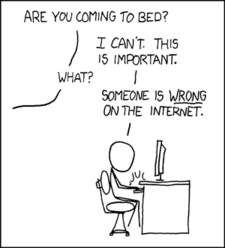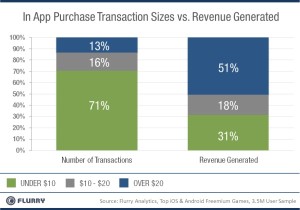The Double-Edged Whale
by Jin Lovelace, HSM team writer & filmmaker
“When inferior, people enter into strife in order that they may be equal, and when equal, in order that they may be greater.”
–Aristotle
With all due respect to the developers for PlayStation Home: I don’t like the Q&A public meetings.
Not to say that I’m not open to them, but I don’t highly agree with them these days. I’ve always pondered on why I dislike them, though, and I never could put it into perspective, mainly because there are so many negatives compared to the positives. For instance: a couple of years ago, it was announced that Atom Republic was hosting a live Q&A session for the Home community. Seeing as I laud some of their fashions and a couple of LMO items, I didn’t see any harm or foul on attending the event, especially if it meant being able to voice my thoughts and suggestions on commodities that could enhance the experience on Home.
Granted, at an experience like this, it’s logical to expect a large crowd. That’s not the problem. The problem is this: self-styled Home “celebrities” who intrusively use such events more to self-aggrandize than to actually find out information from a developer.
A Q&A session with a developer should logically be focused on the developer. The developer should not have to specify a certain level of public decorum; it is frankly common sense to cede the floor to them. However, instead of doing just that, I saw many users spamming the channels with complete nonsense that wasn’t related to any of the topics at hand, nor offering any riveting suggestions towards the developers. In fact, it was as though they wanted to be seen for their dry sense of humor than actual intelligence to purvey some concrete information that could help benefit the developers and the Home experience alike. Though save for the few that were giving said suggestions to the developers, none of them were serious in nature and it was funny to see how the developers were calling the people individually to respond with, “We’ll look into your idea, [insert name]”.
Where there were actual participants that truly wanted to experience this sort of session and wanted to have their ideas and voice heard, they were met with quick frustrations as “Class A” (the celebs, as we’ll label them for now) wanted their fame and shine, quickly gaining the attention that wasn’t meant to be given. This caused some problems with the chat channels, as it was announced several times that the developers needed to read what’s stated.
Forget it. Such events have been, and continue to be, hijacked by members of the community who desperately need to feel and portray that they are closer to developers than everyone else, and thus of greater significance and importance. It is unfortunate that this particular malady seems to infect specific members of the revamped MVP program; while HomeStation has supported and continues to support the MVP program as a whole, that is not a carte blanche endorsement of every single person chosen to represent that program. Like any organization, they have their good seeds and their bad apples.
This isn’t an issue of someone holding strong opinions, by the way. This is an issue of attitude. Specifically, understanding when to serve and not try to take the spotlight for oneself. While most of the MVPs are good people who have a spirit to serve, that frankly cannot be said of all of them. And those who wear the MVP title but act in a manner unbecoming of the role frankly do a far greater disservice to the society than they are worth.
Anyway, as for that particular Q&A session: I just counted my frustrations and simply exited the space, having been sold on one core lesson that had been inculcated: a dev Q&A session is potentially a good publicity move for a developer in engaging power users to act as advocates on their behalf, but otherwise is completely useless due to the egos of certain community members who inevitably will show up at such events. For all the vast numbers of Home’s active user base, the number of power users is relatively small, and it quickly becomes a very incestuous environment when Home’s social scene decides to be seen. (Indeed, this publication has often been vilified by those people because we’ve dared to call them out on it. Their reactions, of course, simply drive more audience numbers to this site in return.)
Now, to be fair, this isn’t the only issue that works against a public dev Q&A session in Home. When such events occur, there are those who feel the session is a venue to vent out their disappointments of other Home developer items to the people that never made them. Or you have the inevitable griefer who demands tech support about something that’s “broken.” Or, worse, advocating for some personal cause célèbre that again has nothing to do with the purpose of the event.
Candidly: all of this behavior is hijiacking. Hijacking the event away from the people who wanted to be there to give support and attend an actual meeting. It is frankly unfair to the people who took the time out of their schedules to log int0 Home, prepare themselves to take some notes, and only instead have their eyes burned by the constant mangled conversations by others whom I believe weren’t motivated to be there in support of the developer at all.
Plato, it would seem, was right: even in a supposedly equal society, some will always strive to be more equal than others. Only a handful of Home users have ever made the jump into having their content displayed in Home, and even fewer have gone from consumer to developer. But that doesn’t stop a particular social strata in Home — the consumer who desperately wants to be above the rest, not through any meaningful contribution, but through copypasta, forum trolling and social clique.
 My god, the amount of time devoted to such a quest for internet fame is…disturbing.
My god, the amount of time devoted to such a quest for internet fame is…disturbing.
Is has to be challenging for a developer. On one hand, you want to engage the power users who are legitimate whales, which means in some cases dealing with personalities that range from distasteful to disreputable. On the other hand, such engagement — to help drive sales and brand loyalty — comes with the price tag of having to then at least pretend to be civil to these same people. The ideal, of course, is that you have engaged fans with large audience who are motivated by a desire to serve and help the community grow, rather than placing themselves first; such people are few and far between, however. And then, worse, because some of the most notable Home power users who actually do have large audiences are usually at odds with each other, it becomes a minefield to navigate.
It is, frankly, a shame. The people who suffer, unfortunately, are the everyday community members. Developers who encounter this sort of behavior at public Q&A sessions now have an incentive to seek out one-way-communication methods or more controlled environments. And the community itself ends up with at best a vaguely dissatisfying event. All so that a few egos can be sated.
HSM believes strongly in the idea of bringing a solution if you bring a problem. Only on very rare occasions has that rule been violated. I feel this is one such instance, because there just isn’t a direct solution to this. I really don’t enjoy writing about such a negative topic, but if the lifeblood of Home is its social scene, and Home has little left except its social scene in the wake of its failed experiment as a gaming platform, then we really do owe it to ourselves to examine exactly what sort of “community” this is.
For developers, I can only offer one suggestion: abandon the concept of a public Q&A as a method of disseminating information. Use it to spur brand recognition with whales if need be, but a public space in Home can hold just north of sixty people. Even if you’re rotating through public scenes to reach more people, your time is probably better spent in one-way-communication avenues where you can convey the exact message you want to convey without distraction. And I would highly encourage looking at expanded methods of in-Home marketing (which may require SCEA/SCEE support to implement as new feature requests) beyond the Message of the Day, as far too much marketing has to take place outside of the application itself.
As for the community at large: I can only encourage following the official SCEA/SCEE blog announcements and whatever particular satellite media sites (such as this one) you aesthetically prefer, and simply enjoy Home for what it is. Because it really is a lot of fun, all the madness aside.
Share
| Tweet |




 Twitter
Twitter
Great article Jin! I agree that many of these events devolve int a shouting match for those with grievances and people who think they are “important”. I have only been to a few of these as I feel the same way you do really, if developers want to have Q&A I think they should create a clubhouse and invite specific people to the sessions. This would be a much more controlled environment and you would still get a good amount of feedback and input.That is the only solution I can see for now.
I stopped going to developer Q&A’s because they are so crazy and that’s to bad because I will spend money in Home if I like something. I know a lot of people feel this way as well. Great article Jin!
:^/ I recall one such meeting a year or two ago. HSM’s own DarthGranny had set is up, with one of the developers attending. It took place in the old Namco Museum space before it was removed.
There was a bit of confusion on the part of a few users who had wandered into that same instance of the space by chance, and who assumed that the developer was just some average user who was deceiving the rest of us, but all in all it had been managed quite well. I’m certain that positioning the audience correctly before the developer makes his appearance can make a huge difference. Some folks, especially younger folks, need to be told ahead of time what is acceptable and what is not.
Id agree with that, I went to one once saw 2 sets of users, the ones that hadnt set it up were there slagging the developer off about an hour before it started in the space it was being held. and the ones that had set it up basically treating the developer like a celebrity. Now the ones doing the slagging had to been known to set up meet and greets themselves so I wonder if there was a bit of, I going to ruin they one. Because as soon as developer arrived they could do no wrong.